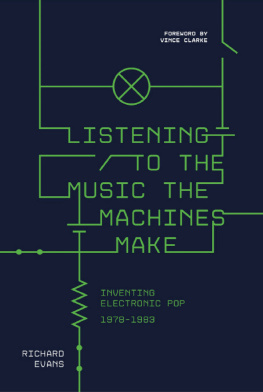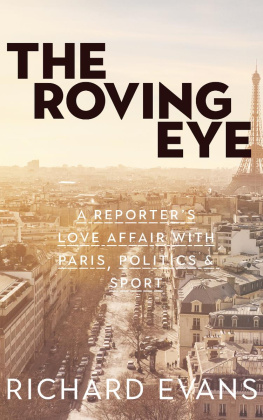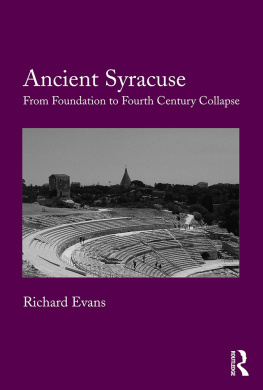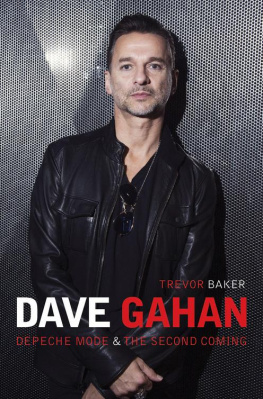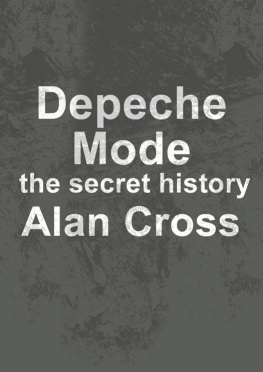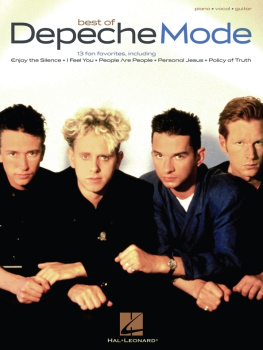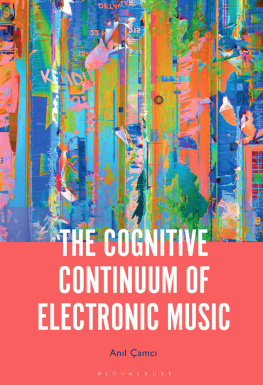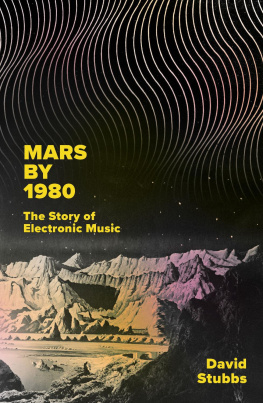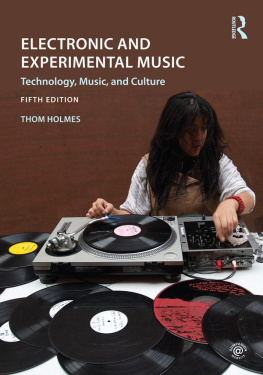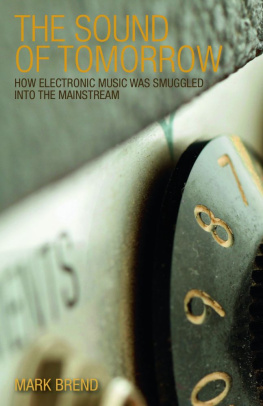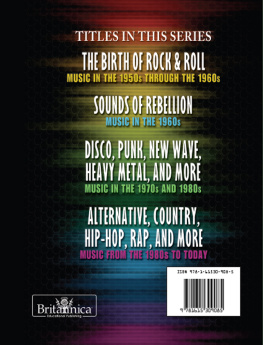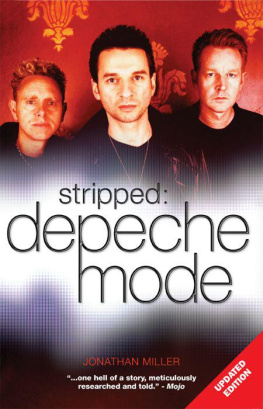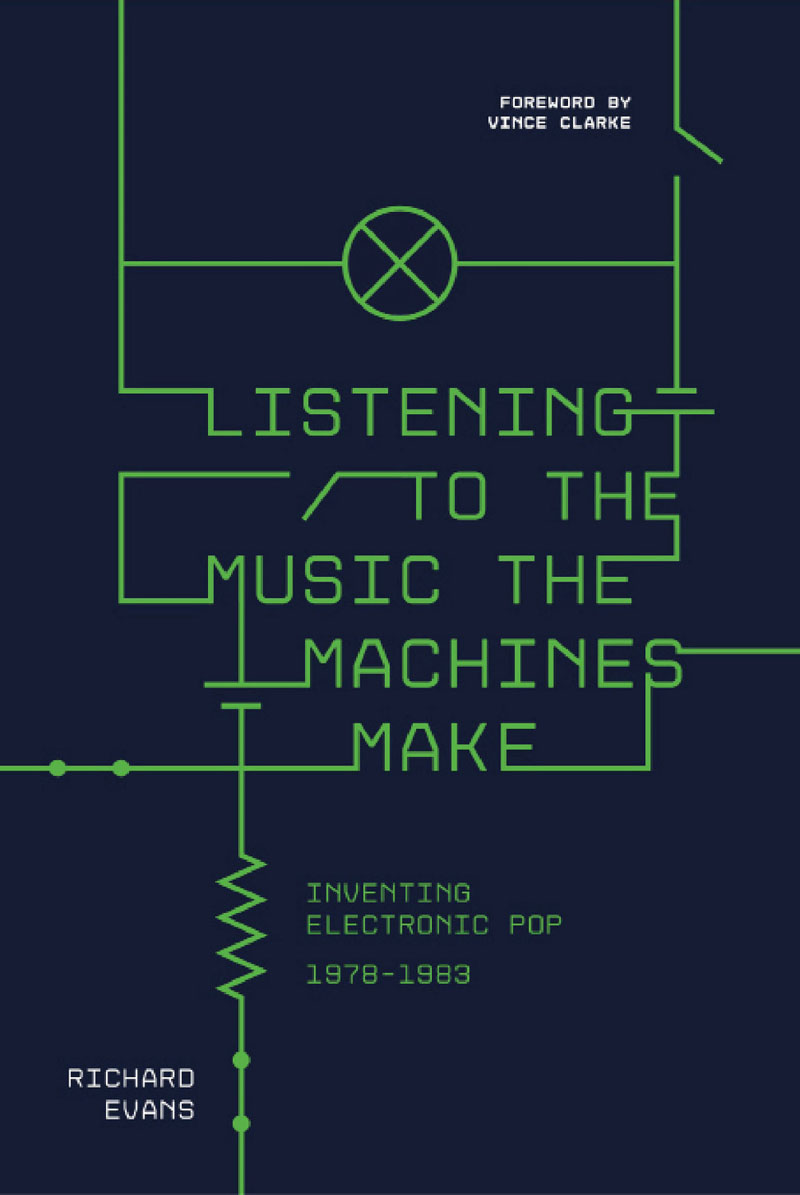
Dedicated to the memory of John Evans
19402002
My Dad. He introduced me to books and films and comedy but had no great interest in music. Discovering music was entirely my own adventure. Dad was always bemused by my various musical obsessions and was amazed that there was a music industry in which I was able to make a living. He would never have read this book but would have been proud that I wrote it.
ACKNOWLEDGEMENTS
In the same way that it takes a village to raise a child, it takes an army to publish a book, and I am incredibly lucky to have had an amazing cast of characters on my side throughout the writing and publication of mine.
First, I would like to thank Charlotte Robertson who introduced me to the Hamilton Agencys Matthew Hamilton, who agreed to become my agent. In turn Matthew brokered a deal with David Barraclough for Omnibus Press to become my publisher. David then introduced me to Nick Jones who so patiently edited the manuscript with an amazing eye for detail and an enviable knack for joining the dots. The team at Omnibus Press then stepped up to not only turn my words into the book you are holding right now, but also to send it into the world: David Barraclough, Claire Browne, Debra Geddes, Greg Morton, David Stock, thank you for everything.
It was important to me while writing Listening to the Music the Machines Make that, instead of relying on asking this cast of extraordinary characters for new recollections of events from forty years ago, I would instead revert to original source material wherever possible. That decision led to my investing a huge amount of time at the British Library, where I spent countless hours scouring the music press of the late seventies and early eighties to extract the original interviews, reviews and information which form the backbone of this book. It was largely researched and written during the pandemic of 2020 and 2021 and I am extremely grateful to the British Library for their diligence in not only re-opening their doors as soon as they were able, but also for providing such a safe and welcoming environment to work in during such difficult times.
In the cases where my research was lacking, or where I was keen to get some additional clarification on events, I was extraordinarily lucky to have access to a number of the key figures who feature in the text. In alphabetical order I am extremely grateful to Neil Arthur, Dave Ball, Andy Bell, Vince Clarke, Rusty Egan, John Foxx, Gareth Jones, Daniel Miller and Martyn Ware for making themselves available while I was writing, as well as to the many artists I have previously interviewed for This Is Not Retro, some of whom very kindly allowed me to use my time with them to answer additional questions back when this book was little more than a glimmer of an idea.
Listening to the music the machines make is a line from the track Just For A Moment from Ultravoxs 1978 album Systems Of Romance and I am hugely indebted to the bands John Foxx for allowing me to use his words as the title, and for his encouragement while I was getting the project off the ground. Thank you also to Steve Malins for connecting us. I am also grateful to Warren Cann and Jonas Wrstad for allowing me to quote from their conversations, and to David Buckley for his various clarifications.
I have been fortunate to work with Erasure for many years, but nevertheless I am deeply touched by Andy Bell and Vince Clarkes support of this project. A huge thank you to both of them for answering my questions; to Vince for so generously agreeing to write the foreword and to Andy for so readily agreeing to help me launch it. Thank you also to the subscribers to the Erasure Information Service for their brilliant, enthusiastic and generous support.
Writing wisdom decrees that when youre writing something its useful to have someone in mind as the person youre writing for. For me that was Clayton Wehrle, my closest friend and partner in crime for many decades, who was the first person to read my early drafts and whose feedback and encouragement was crucial in turning this book into a reality.
And finally, there arent really enough words to sufficiently thank my wife, Beverly, and my daughter, Arianne, for their love, patience and support. Not only did they lose me to writing for many days, weeks and months, but they were also forced to nod and smile politely when I talked about what I was doing. Thank you, I love you both. You dont have to read it, but this is for you.
INTRODUCTION
When Richard first asked me to write the forward for this book, I was well and truly chuffed. This a fascinating, in-depth look at the musical changes and innovations that occurred between 1978 and 1983, a period that without a doubt transformed my own personal musical beginnings and direction.
Instead of relying on the dodgy memories of the artists who were making electronic music in the late seventies and early eighties, he has largely gone back to the music press of that period, building the narrative from the original reports, reviews and interviews that we all gave back then. When Richard has needed a bit of clarification, Ive tried to supply some extra information and I know that many other artists and musicians featured in this book have done the same.
Although my memories of those early days are often hazy, I do remember how it all started for me. The first single I ever bought was Sparks This Town Aint Big Enough for Both of Us, which I played until I wore it out. Music had me hooked. I loved that record and still do, and although Sparks werent electronic as such, they did comprise of a miserable-looking bloke behind a keyboard and a flamboyant, operatic singer out front a spectacle Id never witnessed before.
Then I saw The Graduate and that got me into the music of Paul Simon. I bought the soundtrack album and the songbook and I learned to play those songs. I realised that making music, writing songs and even performing was something I could do myself. I didnt need a fancy recording studio or a major record deal to do the thing that I loved doing the most.
Finally, it was OMD who got me interested in the possibilities of electronic music. Their single Electricity and particularly its B-side, Almost was like the folky music Id been listening to, but created with a completely new and original sound palette. Here was something that I could relate to, a style I could explore, a world with endless possibilities.
These were some of my personal influences, but everyone brought their own thing into their music then. Punk, glam rock, disco you can hear all of those things in the sound of lots of the bands in this book. We all started influencing each other, we all got better at what we were doing, and the technology kept developing. These were transformational times and what made it exciting was that a lot of artists, like myself, were just making it all up as we went along.
Vince Clarke, New York, 2022
CONTENTS

INSPIRATION
1977
We certainly didnt design the instrument with the idea that a guy with no musical training would use it. We always hoped and planned that it would be used by decent musicians. The keyboard was an afterthought. That was one convenient way of controlling it, switching it on and off and changing the pitch. The Minimoog was conceived originally as a session musicians axe, something a guy could carry to the studio, do a gig and walk out. We thought wed sell maybe 100 of them.
Next page
